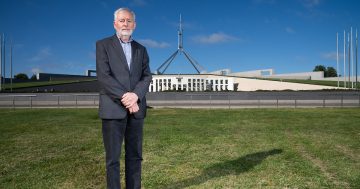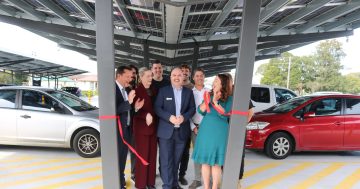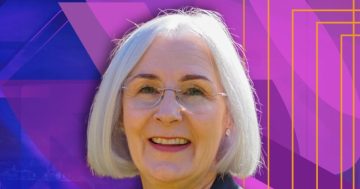The Australia and New Zealand School of Government* (ANZSOG) discusses key takeaways from its recent webinar Learning to listen again on how Governments can listen to the public and develop policies that work for everyone.
 COVID-19 has led to a major debate about how Governments respond to citizens, and how the innovations sparked by the necessity of a response to COVID-19 can be adapted to make Government more responsive.
COVID-19 has led to a major debate about how Governments respond to citizens, and how the innovations sparked by the necessity of a response to COVID-19 can be adapted to make Government more responsive.
The most recent free online Reimagining Government webinar, Learning to listen again, a joint venture between ANZSOG and the Centre for Public Impact considered how Governments can do a better job of listening to all voices and develop policies that work for everyone.
ANZSOG’s Simon Kent, Deputy CEO Thought Leadership, moderated a debate between CPI Senior Associate Ruth Ball and Massey University’s Professor Suze Wilson which explored the importance of learning to listen, how Governments can increase trust by devolving decision-making and check the behaviour of powerful politicians.
Reimagining Government is a series of free webinars which attempt to chart a new course for Government based on an ‘enablement paradigm’ which sees Government as a curator of a strong civil society, rather than as a problem solver on its own.
The series aims to contribute to the global conversation about what Governments have learnt from COVID-19.
Mr Kent began the debate by asking the panel a question the audience had chosen: ‘what do you see as the main barriers of listening to community and how do we address them?’.
Ms Ball said that CPI had undertaken research in the north-east of England to listen to seldom heard groups, that were dealing with complex challenges, and had found that this group felt most listened to in existing relationships where there were high levels of trust and empathy already existing, often with frontline workers.
She said that two of the main barriers were centralised decision making, which meant the trusted workers were not the ones that made decisions about peoples lives, and the siloisation which saw a Government worker dealing with, for example, an addiction issue but unable to address health or housing needs.
“That person you trust won’t be able to help you, even if they can listen and understand you and both of you have invested a lot in that relationship,” she said.
“At a systems level, we need to be helping those organisations to link up to respond to a wider range of needs, and move decision-making power to where it is as close to the people being served as possible.
“Although I’d say that nobody has really cracked these issues yet.”
Professor Wilson said that the notion of leadership was rooted in historic notions that the ‘leader knows best’ and that in a crisis the leaders job was to command and lead a response.
“So when we lead more openly and inclusively, when we admit that we don’t know then there is a strong risk that this will be perceived as not leadership because it goes against the cultural norm.
“This can be a difficult balancing act,” she said.
“Even if we are committed to the shift, it is hard work.
“The more you listen the more you are going to expose yourself to a range of perspectives.
“It can be easier not to look, not to ‘open the box’ and just pretend the issues aren’t there.”
Professor Wilson said that New Zealand Prime Minister Jacinda Ardern had been able to incorporate listening into her leadership of New Zealand’s response to COVID-19, partly because she had already established her credentials as a listening leader after the Christchurch Mosque attacks in 2018.
“Ms Ardern was able to communicate in a way that used the three key elements of communication. Generally leaders do far too much ‘direction giving’ not enough of the ‘meaning making’ and the ‘empathy’ – which are important for convincing people that the leader understands the situation and what it means,” she said.
Giving up power and control
Ms Ball said that while the experience of being listened to was a positive in itself, expectation setting around the results was also important.
“When people share their stories with an expectation that it will be resolved, or at least sent to a decision-maker, and that doesn’t happen it can be disappointing.
“Really good listening exists very well at a local level, but not at central Government level.
“Central messaging around COVID resonates for some people but not others.”
She said that devolving power would have positive long-term impacts and lift trust between Governments and people.
“We need to understand where there are still good relationships that exist and empower those, so the people who should be being heard are heard.
“At a local level individuals and community groups need to be empowered to make the changes that they want to see, and that empowerment can generate more trust in the long-term.”
Professor Wilson said that leaders needed to understand the effects of having power and of giving it up.
“There’s a whole body of research about what power does to our psychology and even our physiology.
“When we are in a position of power we feel more energetic, optimistic and resilient – but more likely to be self-serving, hypocritical and feel rules don’t apply to us,” she said.
“There are real dangers that go with leadership and power and the more we can educate people going into leadership roles about these dangers the more we can be discerning about not mistaking confidence for competence.”
“It is the paradox of leadership that they have this power but they need to use it to empower others.
“A meta-competency that it’s important we try and develop in leaders is cognitive complexity – holding different views in our minds at the same time and not being undone by the complexity of that so they can work in the system but also work on the system,
“The bulk of leadership work is not big speeches or press conferences but the daily conversation with people can get them to think beyond now, and create spaces where they can feel confident they can speak truth to power.”
ANZSOG and the CPI will hold two more Reimagining Government webinars in 2021.
*ANZOG is an educational institution that teaches strategic management and high-level policy to public sector leaders.
This article first appeared at anzsog.edu.au.











